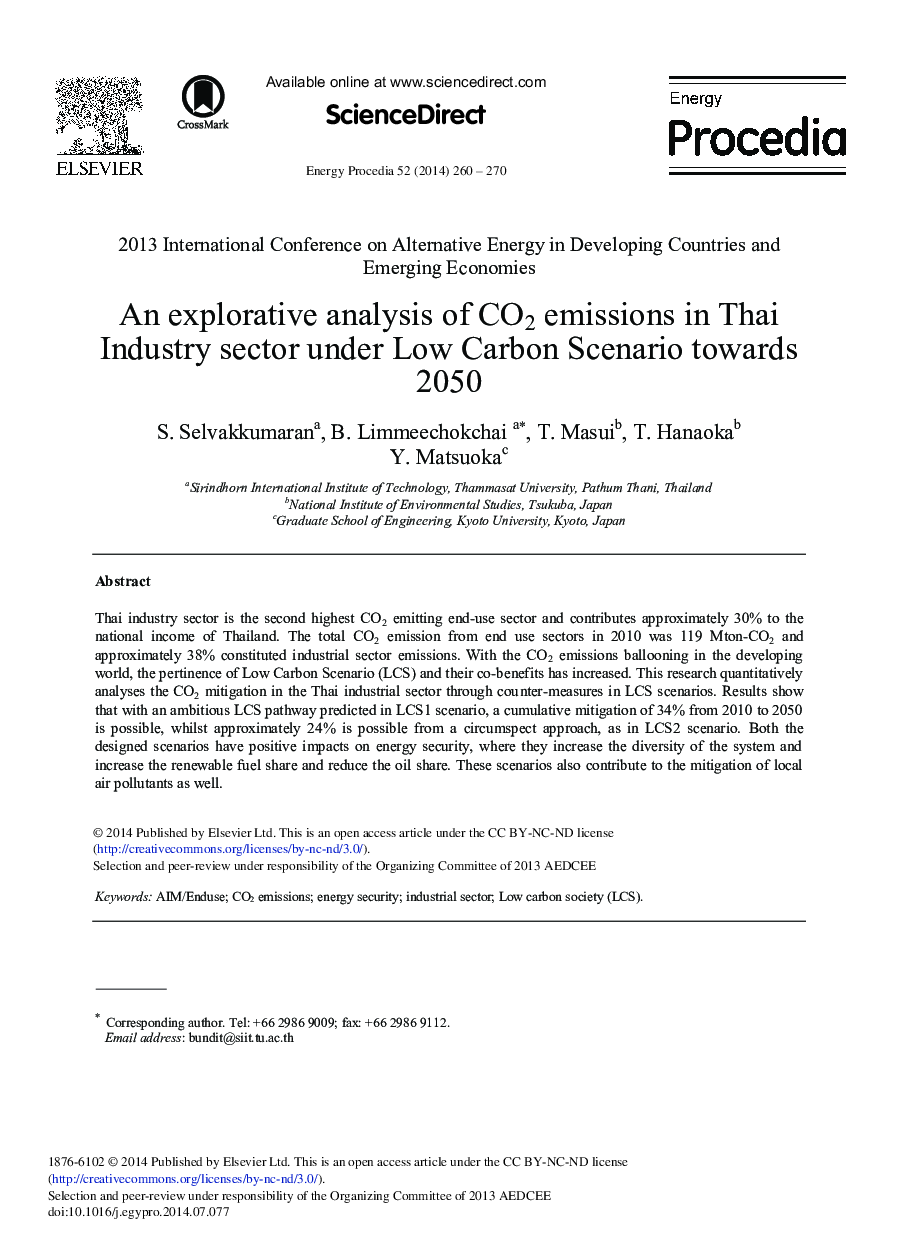| کد مقاله | کد نشریه | سال انتشار | مقاله انگلیسی | نسخه تمام متن |
|---|---|---|---|---|
| 1511281 | 1511183 | 2014 | 11 صفحه PDF | دانلود رایگان |

Thai industry sector is the second highest CO2 emitting end-use sector and contributes approximately 30% to the national income of Thailand. The total CO2 emission from end use sectors in 2010 was 119 Mton-CO2 and approximately 38% constituted industrial sector emissions. With the CO2 emissions ballooning in the developing world, the pertinence of Low Carbon Scenario (LCS) and their co-benefits has increased. This research quantitatively analyses the CO2 mitigation in the Thai industrial sector through counter-measures in LCS scenarios. Results show that with an ambitious LCS pathway predicted in LCS1 scenario, a cumulative mitigation of 34% from 2010 to 2050 is possible, whilst approximately 24% is possible from a circumspect approach, as in LCS2 scenario. Both the designed scenarios have positive impacts on energy security, where they increase the diversity of the system and increase the renewable fuel share and reduce the oil share. These scenarios also contribute to the mitigation of local air pollutants as well.
Journal: Energy Procedia - Volume 52, 2014, Pages 260-270